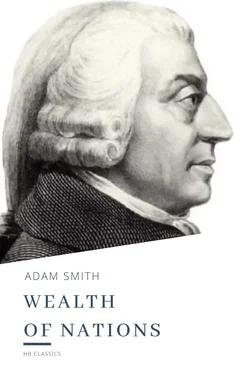Those professions keep their level, however, with other occupations, and, notwithstanding these discouragements, all the most generous and liberal spirits are eager to crowd into them. Two different causes contribute to recommend them. First, the desire of the reputation which attends upon superior excellence in any of them; and, secondly, the natural confidence which every man has more or less, not only in his own abilities, but in his own good fortune.
To excel in any profession, in which but few arrive at mediocrity, is the most decisive mark of what is called genius or superior talents. The public admiration which attends upon such distinguished abilities makes always a part of their reward; a greater or smaller in proportion as it is higher or lower in degree. It makes a considerable part of that reward in the profession of physic; a still greater perhaps in that of law; in poetry and philosophy it makes almost the whole.
There are some very agreeable and beautiful talents of which the possession commands a certain sort of admiration; but of which the exercise for the sake of gain is considered, whether from reason or prejudice, as a sort of public prostitution. The pecuniary recompense, therefore, of those who exercise them in this manner must be sufficient, not only to pay for the time, labour, and expense of acquiring the talents, but for the discredit which attends the employment of them as the means of subsistence. The exorbitant rewards of players, opera-singers, opera-dancers, etc., are founded upon those two principles; the rarity and beauty of the talents, and the discredit of employing them in this manner. It seems absurd at first sight that we should despise their persons and yet reward their talents with the most profuse liberality. While we do the one, however, we must of necessity do the other. Should the public opinion or prejudice ever alter with regard to such occupations, their pecuniary recompense would quickly diminish. More people would apply to them, and the competition would quickly reduce the price of their labour. Such talents, though far from being common, are by no means so rare as is imagined. Many people possess them in great perfection, who disdain to make this use of them; and many more are capable of acquiring them, if anything could be made honourably by them.
The overweening conceit which the greater part of men have of their own abilities is an ancient evil remarked by the philosophers and moralists of all ages. Their absurd presumption in their own good fortune has been less taken notice of. It is, however, if possible, still more universal. There is no man living who, when in tolerable health and spirits, has not some share of it. The chance of gain is by every man more or less overvalued, and the chance of loss is by most men undervalued, and by scarce any man, who is in tolerable health and spirits, valued more than it is worth.
That the chance of gain is naturally overvalued, we may learn from the universal success of lotteries. The world neither ever saw, nor ever will see, a perfectly fair lottery; or one in which the whole gain compensated the whole loss; because the undertaker could make nothing by it. In the state lotteries the tickets are really not worth the price which is paid by the original subscribers, and yet commonly sell in the market for twenty, thirty, and sometimes forty per cent advance. The vain hope of gaining some of the great prizes is the sole cause of this demand. The soberest people scarce look upon it as a folly to pay a small sum for the chance of gaining ten or twenty thousand pounds; though they know that even that small sum is perhaps twenty or thirty per cent more than the chance is worth. In a lottery in which no prize exceeded twenty pounds, though in other respects it approached much nearer to a perfectly fair one than the common state lotteries, there would not be the same demand for tickets. In order to have a better chance for some of the great prizes, some people purchase several tickets, and others, small share in a still greater number. There is not, however, a more certain proposition in mathematics than that the more tickets you adventure upon, the more likely you are to be a loser. Adventure upon all the tickets in the lottery, and you lose for certain; and the greater the number of your tickets the nearer you approach to this certainty.
That the chance of loss is frequently undervalued, and scarce ever valued more than it is worth, we may learn from a very moderate profit of insurers. In order to make insurance, either from fire or sea-risk, a trade at all, the common premium must be sufficient to compensate the common losses, to pay the expense of management, and to afford such a profit as might have been drawn from an equal capital employed in any common trade. The person who pays no more than this evidently pays no more than the real value of the risk, or the lowest price at which he can reasonably expect to insure it. But though many people have made a little money by insurance, very few have made a great fortune; and from this consideration alone, it seems evident enough that the ordinary balance of profit and loss is not more advantageous in this than in other common trades by which so many people make fortunes. Moderate, however, as the premium of insurance commonly is, many people despise the risk too much to care to pay it. Taking the whole kingdom at an average, nineteen houses in twenty, or rather perhaps ninety-nine in a hundred, are not insured from fire. Sea risk is more alarming to the greater part of people, and the proportion of ships insured to those not insured is much greater. Many fail, however, at all seasons, and even in time of war, without any insurance. This may sometimes perhaps be done without any imprudence. When a great company, or even a great merchant, has twenty or thirty ships at sea, they may, as it were, insure one another. The premium saved upon them all may more than compensate such losses as they are likely to meet with in the common course of chances. The neglect of insurance upon shipping, however, in the same manner as upon houses, is, in most cases, the effect of no such nice calculation, but of mere thoughtless rashness and presumptuous contempt of the risk.
The contempt of risk and the presumptuous hope of success are in no period of life more active than at the age at which young people choose their professions. How little the fear of misfortune is then capable of balancing the hope of good luck appears still more evidently in the readiness of the common People to enlist as soldiers, or to go to sea, than in the eagerness of those of better fashion to enter into what are called the liberal professions.
What a common soldier may lose is obvious enough. Without regarding the danger, however, young volunteers never enlist so readily as at the beginning of a new war; and though they have scarce any chance of preferment, they figure to themselves, in their youthful fancies, a thousand occasions of acquiring honour and distinction which never occur. These romantic hopes make the whole price of their blood. Their pay is less than that of common labourers, and in actual service their fatigues are much greater.
The lottery of the sea is not altogether so disadvantageous as that of the army. The son of a creditable labourer or artificer may frequently go to sea with his father's consent; but if he enlists as a soldier, it is always without it. Other people see some chance of his making something by the one trade: nobody but himself sees any of his making anything by the other. The great admiral is less the object of public admiration than the great general, and the highest success in the sea service promises a less brilliant fortune and reputation than equal success in the land. The same difference runs through all the inferior degrees of preferment in both. By the rules of precedency a captain in the navy ranks with a colonel in the army; but he does not rank with him in the common estimation. As the great prizes in the lottery are less, the smaller ones must be more numerous. Common sailors, therefore, more frequently get some fortune and preferment than common soldiers; and the hope of those prizes is what principally recommends the trade. Though their skill and dexterity are much superior to that of almost any artificers, and though their whole life is one continual scene of hardship and danger, yet for all this dexterity and skill, for all those hardships and dangers, while they remain in the condition of common sailors, they receive scarce any other recompense but the pleasure of exercising the one and of surmounting the other. Their wages are not greater than those of common labourers at the port which regulates the rate of seamen's wages. As they are continually going from port to port, the monthly pay of those who sail from all the different ports of Great Britain is more nearly upon a level than that of any other workmen in those different places; and the rate of the port to and from which the greatest number sail, that is the port of London, regulates that of all the rest. At London the wages of the greater part of the different classes of workmen are about double those of the same classes at Edinburgh. But the sailors who sail from the port of London seldom earn above three or four shillings a month more than those who sail from the port of Leith, and the difference is frequently not so great. In time of peace, and in the merchant service, the London price is from a guinea to about seven-and-twenty shillings the calendar month. A common labourer in London, at the rate of nine or ten shillings a week, may earn in the calendar month from forty to five-and-forty shillings. The sailor, indeed, over and above his pay, is supplied with provisions. Their value, however, may not perhaps always exceed the difference between his pay and that of the common labourer; and though it sometimes should, the excess will not be clear gain to the sailor, because he cannot share it with his wife and family, whom he must maintain out of his wages at home.
Читать дальше












